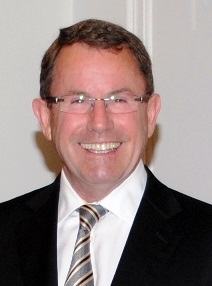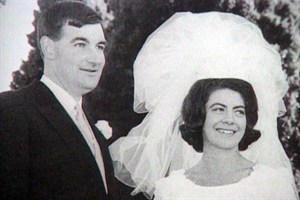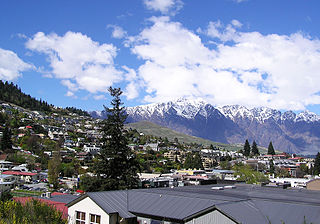
John Archibald Banks is a New Zealand former politician. He was a member of Parliament for the National Party from 1981 to 1999, and for ACT New Zealand from 2011 to 2014. He was a Cabinet Minister from 1990 to 1996 and 2011 to 2013. He left Parliament after being convicted of filing a false electoral return – a verdict which was later overturned.

On 20 June 1994, Robin and Margaret Bain and three of their four children – Arawa, Laniet, and Stephen – were shot to death in Dunedin, New Zealand. The only suspects were David Cullen Bain, the eldest son and only survivor, and Robin Bain, the father. David Bain, aged 22, was charged with five counts of murder. In May 1995, he was convicted on each of the five counts and sentenced to mandatory life in prison with a minimum non-parole period of sixteen years.
False evidence, fabricated evidence, forged evidence, fake evidence or tainted evidence is information created or obtained illegally in order to sway the verdict in a court case. Falsified evidence could be created by either side in a case, or by someone sympathetic to either side. Misleading by suppressing evidence can also be considered a form of false evidence ; however, in some cases, suppressed evidence is excluded because it cannot be proved the accused was aware of the items found or of their location. The analysis of evidence may also be forged if the person doing the forensic work finds it easier to fabricate evidence and test results than to perform the actual work involved. Parallel construction is a form of false evidence in which the evidence is truthful but its origins are untruthfully described, at times in order to avoid evidence being excluded as inadmissible due to unlawful means of procurement such as an unlawful search.

Pukekawa is a town in the Lower Waikato River area of New Zealand's North Island, 66 km south of central Auckland. The area's fertile soils are used to grow a range of vegetables, including onions, potatoes and carrots. The town was in the Franklin District until the district's abolition in 2010.

Peter Hugh McGregor Ellis was a New Zealand childcare worker who was wrongfully convicted of child sexual abuse. He was at the centre of one of the country's most enduring judicial controversies, after being found guilty in June 1993 in the High Court on 16 counts of sexual offences involving children in his care at the Christchurch Civic Creche and sentenced to 10 years' imprisonment. He maintained his innocence until his death 26 years later and was supported by many New Zealanders in his attempts to overturn his convictions, although others believed he was guilty. Concerns about the reliability of the convictions centred on far-fetched stories told by many of the children and the interview techniques used to obtain their testimony.

David Harvey Crewe and Jeannette Lenore Crewe were a New Zealand farming couple who were shot to death in their home on or about 17 June 1970. The murders led to the wrongful conviction and subsequent pardoning of another farmer who lived in the district, Arthur Allan Thomas. A Royal Commission set up to investigate the miscarriage of justice found that a detective had fabricated evidence and placed it at the scene of the crime. No person was ever charged with planting the evidence, and the murders remain unsolved.

Joseph Francis Karam, also known by the nickname of "Clock", is a New Zealand former representative rugby footballer who played for the All Blacks. After retiring from rugby, he became a businessman. However, he is most notable for waging a successful 15-year campaign to have David Bain's convictions for murder overturned, and a subsequent campaign seeking compensation for him.
Christopher Harder is a lawyer based in Auckland, New Zealand.

Swedish tourists Sven Urban Höglin, aged 23, and his fiancée Heidi Birgitta Paakkonen, aged 21, disappeared while tramping on the Coromandel Peninsula of New Zealand in 1989. Police, residents, and military personnel conducted the largest land-based search undertaken in New Zealand, attempting to find the couple. In December 1990, David Wayne Tamihere was convicted of murdering Höglin and Paakkonen, and sentenced to life imprisonment based largely on the testimony of three prison inmates.
Christine Marie Lundy, 38, and her 7-year-old daughter Amber Grace Lundy were murdered in Palmerston North, New Zealand, on 29 or 30 August 2000. In February 2001, after a six month investigation, Christine's husband and Amber's father, Mark Edward Lundy, was arrested and charged, and in 2002, he was convicted of the murders and sentenced to life imprisonment with a minimum non-parole period of 17 years.
The murders of Gene and Eugene Thomas occurred in Wellington, New Zealand on 16 February 1994. Eugene, 68, and his son Gene, 30, were both investment and insurance brokers and owners of Invincible House at 136 The Terrace in Wellington. Their bodies were discovered inside their offices at around 6.30pm by two cleaners. John Barlow was convicted after an unprecedented third murder trial, the first two trials ending in hung juries. The need for three trials caused controversy and raised questions about aspects of the New Zealand justice system.

R v Evans and McDonald was the prosecution of two footballers, Ched Evans and Clayton McDonald, who were accused of the rape of a woman. On 20 April 2012, Evans was convicted and sentenced to five years imprisonment. McDonald was acquitted. Several people were later fined after naming the woman on Twitter and other social media websites.
Scott Guy, a New Zealand farmer, was shot dead at the gate of the family farm in Feilding, Manawatū-Whanganui, in July 2010 at age 31. Six months later, his brother-in-law, Ewen Macdonald, was charged with murder. Macdonald was married to Guy's sister, Anna, and Guy had been best man at their wedding. Both men managed the Guys' family farm and surrounding properties on Aorangi Road, a few miles from Feilding. At the trial, it was disclosed that Guy and Macdonald had different priorities and a competitive relationship. In 2008, two years before he was killed, Guy announced at a family meeting that he expected to inherit the farm. The defence claimed that by the time of the murder, difficulties between the two had settled down and they were getting on well.

The Queenstown suppressed indecency case was a police investigation and court case in New Zealand from 2011 to 2014 in which a celebrity was accused of, pleaded guilty to and was convicted of "performing an indecent act intended to insult or offend" against a woman in Queenstown and later discharged without conviction and given permanent name suppression. The case fuelled discussion and controversy in New Zealand over the use by courts of suppression orders to protect the identity of perpetrators of higher social status.
Ben Smart and Olivia Hope, two young New Zealanders, disappeared in the early hours of the morning on New Year's Day, 1 January 1998. The two friends had been celebrating on New Year's Eve at Furneaux Lodge in the Marlborough Sounds with other partygoers. The pair accepted an offer from a stranger to stay aboard his yacht in the early hours of the morning, and it was the last time they were seen alive. The disappearance of the duo sparked one of the most publicised and controversial investigations in New Zealand's history.
The Larnoch Road murders is a controversial double-murder case in Auckland, New Zealand. On 21 August 1989, Deane Wade Fuller-Sandys, a 21-year-old Auckland tyre-fitter, left home to go fishing. He never returned. His body was never found and authorities initially believed he probably drowned after being swept out to sea at West Auckland's Whatipu Beach, where his car was discovered shortly afterwards. An old friend of Fuller-Sandys later told police that he may have committed suicide, as he had just broken up with his girlfriend.

Grace Emmie Rose Millane was a British tourist who was murdered in Auckland, New Zealand, in December 2018. A 26-year-old man, Jesse Shane Kempson, was charged with her murder on 8 December 2018, and her body was found in the Waitākere Ranges to the west of Auckland the following day. Kempson's name was initially suppressed by New Zealand courts, meaning it could not be published in New Zealand; however, some international media outlets chose to publish it contrary to the New Zealand court order.
Amber-Rose Rush was a 16-year-old New Zealander whose death in Dunedin in February 2018 drew extensive national media coverage. Venod Skantha, a 30-year-old Dunedin doctor, was subsequently charged with her murder. The trial of Skantha commenced on 4 November 2019 at the Dunedin High Court on a charge of murder and four counts of threatening to kill. On 26 November 2019, Skantha was found guilty of all charges. In 2020 he was sentenced to life imprisonment, with a minimum non-parole term of 19 years. On 14 April 2021, the New Zealand Court of Appeal dismissed Skantha's appeal and affirmed his conviction. The following day, Skantha was reported to have died in custody.
The New Zealand Criminal Cases Review Commission is an independent Crown entity that was set up under the Criminal Cases Review Commission Act 2019 to investigate potential miscarriages of justice. If the Commission considers a miscarriage may have occurred, it can refer the case back to the Court of Appeal to be reconsidered.










